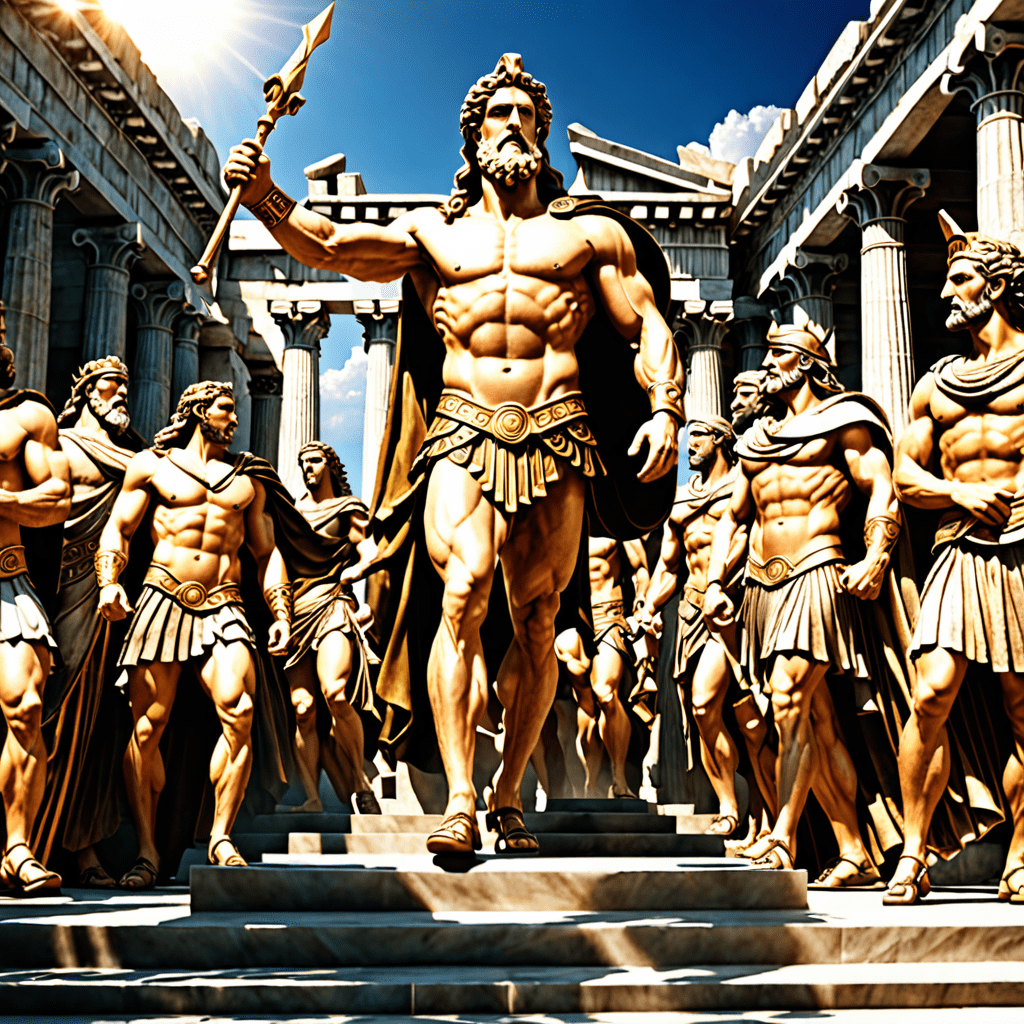The Representation of Leadership in Greek Mythology
Greek mythology, with its plethora of gods, heroes, and ancient tales, offers a rich tapestry of representations of leadership qualities and characteristics. Let’s delve into how various figures in Greek mythology embody different aspects of leadership.
1. Zeus: The Commanding Leader
Zeus, the king of the gods, exemplifies the archetype of a commanding leader in Greek mythology. With his thunderbolt as a symbol of power, Zeus rules over Mount Olympus and makes decisions that impact both gods and mortals. Despite his imperfections and occasional flaws, Zeus’s authority and ability to resolve conflicts among the gods highlight key traits of leadership such as decisiveness and guidance.
2. Athena: The Wise Strategist
Athena, the goddess of wisdom and warfare, embodies qualities of strategic leadership in Greek mythology. Known for her intellect, courage, and battlefield tactics, Athena represents leadership through thoughtful planning, quick thinking, and problem-solving skills. Her guidance of heroes like Odysseus showcases the importance of wisdom and foresight in effective leadership.
3. Odysseus: The Resilient Leader
Odysseus, the protagonist of Homer’s epic poem “The Odyssey,” stands as a symbol of resilience and adaptability in leadership roles. Through his long and arduous journey home from the Trojan War, Odysseus encounters numerous challenges that test his endurance and ability to lead his men. His cleverness, perseverance, and resourcefulness demonstrate essential traits of leadership, emphasizing the importance of persistence and navigating obstacles.
4. Hera: The Protective Leader
Hera, the queen of the gods and the goddess of marriage, represents leadership in a protective and nurturing light in Greek mythology. Despite her sometimes vengeful nature, Hera’s fierce dedication to protecting her domain, family, and values showcases leadership qualities such as loyalty, commitment, and the safeguarding of those under her care. Her role as a guardian reflects the importance of responsibility and stewardship inherent in effective leadership.
Throughout Greek mythology, diverse characters like Zeus, Athena, Odysseus, and Hera offer multifaceted representations of leadership, each emphasizing unique virtues and capabilities essential for guiding individuals and communities.





